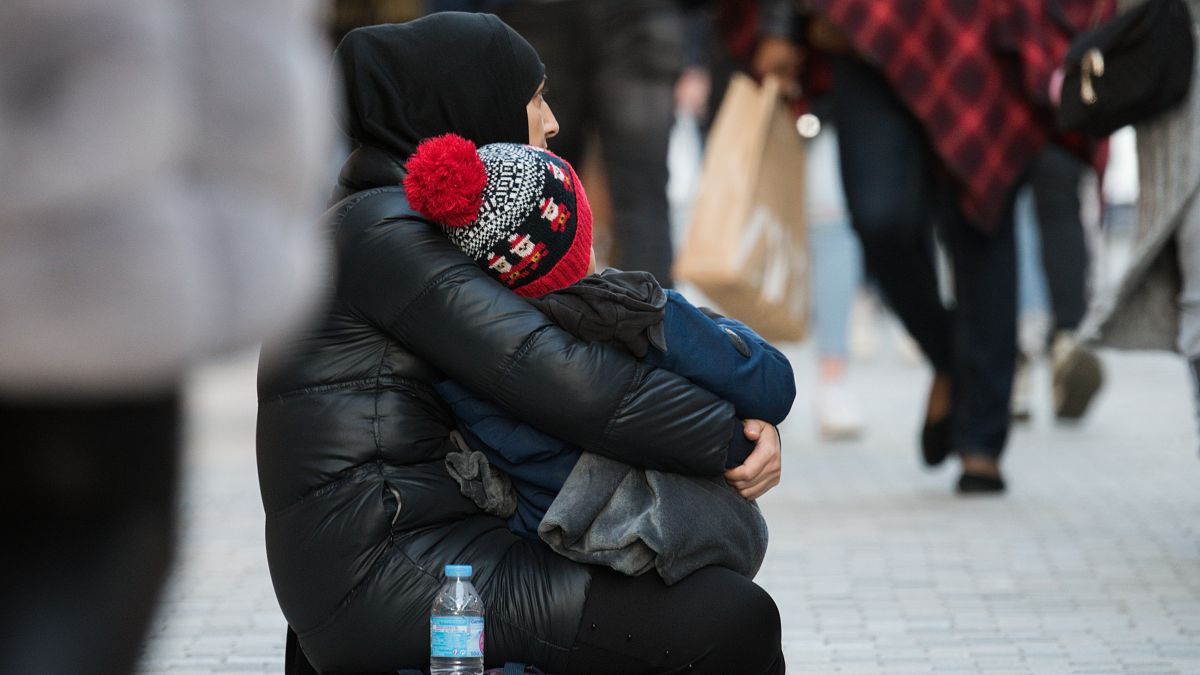The European Anti-Poverty Network report points to fairer taxation as a tool to avoid marginalisation.
Poverty has many faces, but its most common face is that of a woman, like 54-year-old Geneviève Baert, who lives in Belgium. Losing the family business when she was a teenager and caring for five children as a single mother pushed her into poverty.
"I had a period when I was poor and I didn't know it," she says in an interview with Euronews. But aid networks pushed her to "fight in a different way, with other weapons" and prevented her from blaming herself. "It's society that doesn't put things around me so that I can evolve," she says.
She is one of the 95.3 million people in the European Union who in 2022 were at risk of social exclusion or poverty. According to Eurostat, the European statistics office, this is 22% of the bloc's population. Countries such as Romania (34%), Bulgaria (32%), Greece and Spain (both 26%), top the list.
Baert belongs to one of the most vulnerable groups: women. This is according to the latest report by the European Anti-Poverty Network (EAPN). Women's poverty "is worsened by low pay and care responsibilities and they are more likely to be in part-time or temporary employment". For example, the report warns that in Austria approximately half of women work part-time in order to care for their children, making them financially dependent on their partners.
According to EAPN President Carlos Susias, the situation is "structural". There is "a difference in all the parameters of poverty between men and women, in favour of men, against women". Therefore, for Susias, the measures to put an end to gender differences must go beyond current protection policies and point to a better work-life balance.
For Baert, being able to take her children to kindergarten was key. "It's important for the mother, because she can emancipate herself, and it's important for the child, because he or she is already learning socialisation at that age," she explains.
But Susias also calls for changes in the taxation of single parents, who make up 80% of single parents with dependent children. "We need tax policies that also allow for certain negative taxes to support families in more vulnerable situations," he says.
Baert laments that poverty has affected her children's lives and opportunities. "I have had a very bad experience of school because there is a lot of discrimination against children from disadvantaged backgrounds," she says. In addition, she has missed the empathy of other parents or schools. "That leaves its mark on children, indelible marks", she says.
Cost of housing increasing risk of poverty
The report also warns that rising house prices and high inflation have hit vulnerable groups, including young people and those with low levels of education, the hardest. This is the case in Portugal, where the report explains that "in 2022, 19.4% of the population at risk of poverty was overburdened by housing costs, compared to 2.2% of the population not at risk of poverty". Furthermore, the text warns that across Portugal there are 2.8 million households with housing-related financial problems.
Housing-related difficulties, such as the impossibility of keeping it at an adequate temperature in winter, are also higher among groups at risk of poverty.
According to a European Commission report on access to essential services in the EU in 2024, energy poverty "in all Member States is higher for people at risk of poverty, ranging from 3.9% in Finland to 50.6% in Cyprus, while the EU average is 20.2%".
